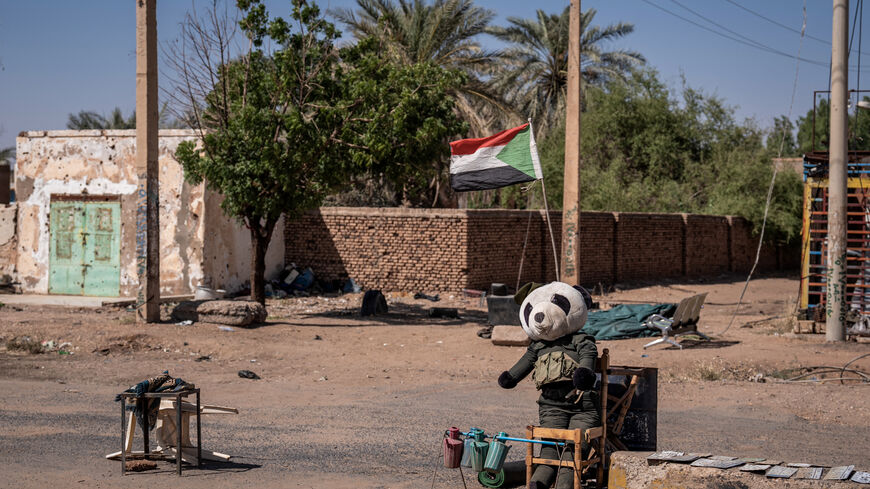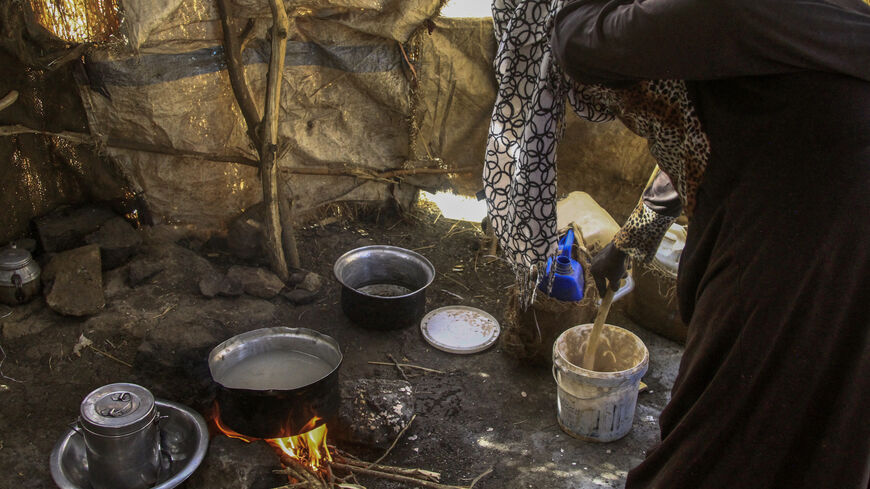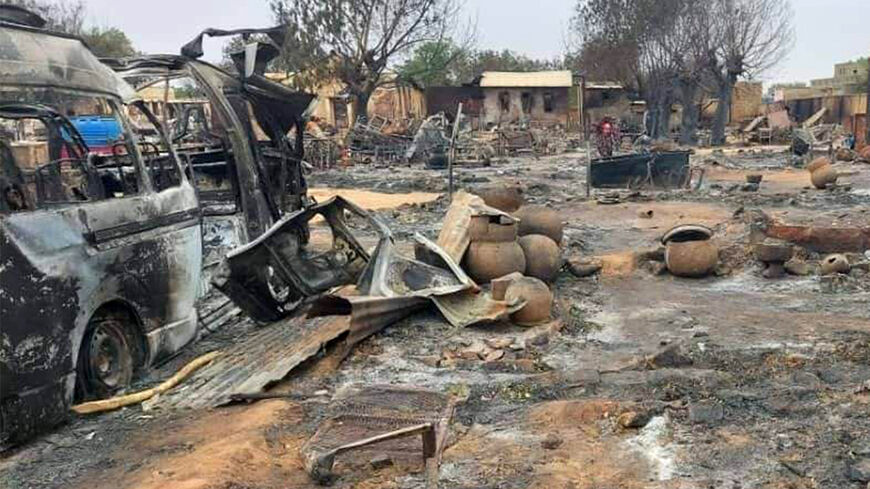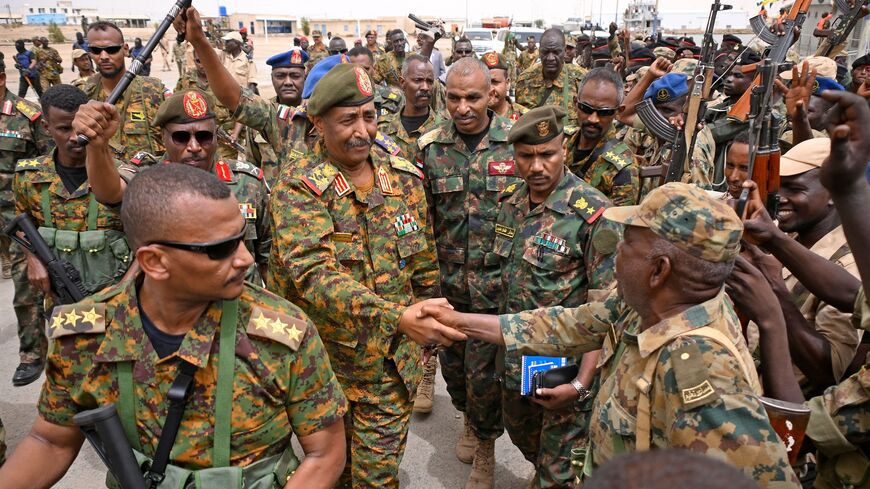Sudan war could trigger 'world’s largest hunger crisis,' says UN
The war in Sudan has left millions in need of immediate relief as humanitarian conditions deteriorate.
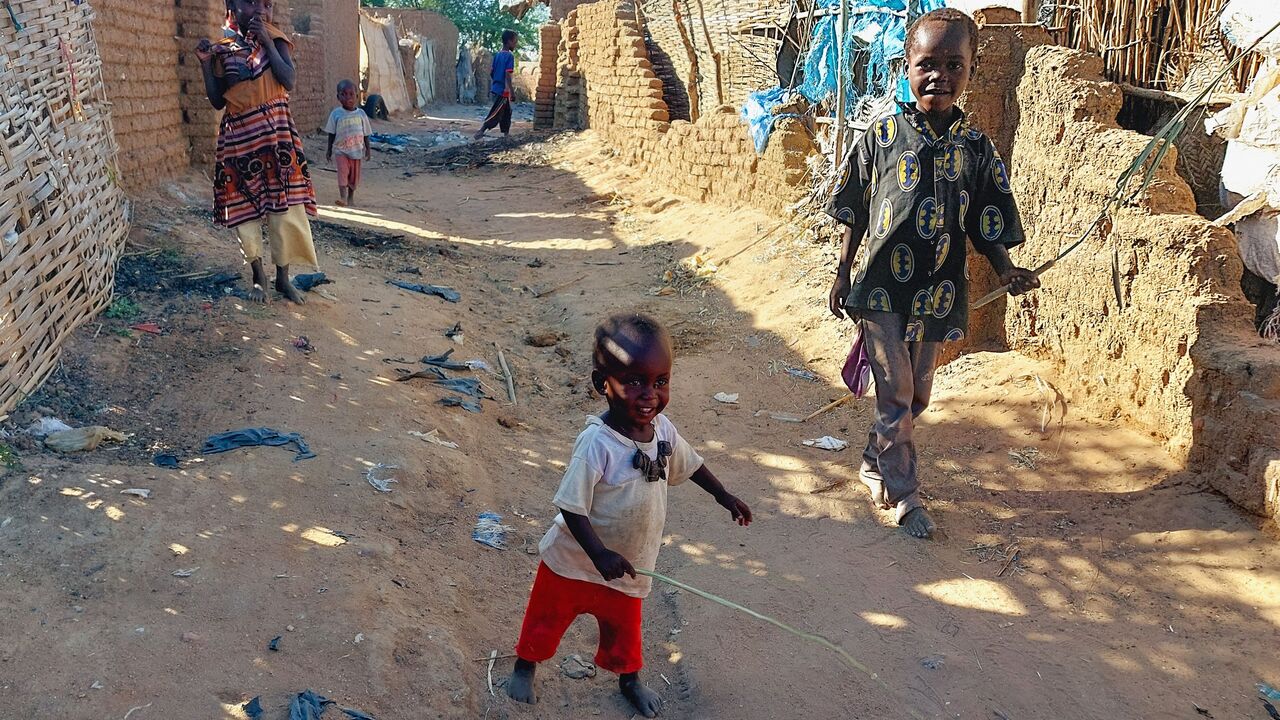
The United Nations is sounding the alarm of an imminent hunger crisis in Sudan as millions of people face the growing risk of famine, which would make it the world’s worst crisis, in light of the ongoing civil conflict in the country.
“The war in Sudan risks triggering the world’s largest hunger crisis,” World Food Programme Executive Director Cindy McCain warned in a press release published Wednesday. “Millions of lives and the peace and stability of an entire region are at stake.”
The WFP said more than 25 million people in Sudan, South Sudan and Chad are currently “trapped in a spiral of deteriorating food security,” warning that its teams have been unable to reach 90% of people facing emergency levels of hunger in Sudan.
The UN agency called for an immediate cease-fire in the country and urged the concerned parties to guarantee “unimpeded access” to deliver aid and “prevent catastrophe.”
The humanitarian situation in Sudan has been fast deteriorating since a power struggle between the Sudanese army and its commander, Abdel Fattah al-Burhan, and the paramilitary Rapid Support Forces led by Mohamed Hamdan Dagalo escalated into armed clashes on April 15, 2023.
Nearly 8 million of Sudan’s population of 51 million have been forced to leave their homes in what UN agencies describe as the world’s worst displacement crisis.
The fighting, which first broke out in the capital Khartoum, has since spread to other parts of Sudan, with the RSF taking control of all the states in the Darfur region and parts of Khartoum as well as the Gezira state, considered Sudan’s breadbasket.
On Tuesday, Sudan’s warlords agreed to indirect mediation through Libya and Turkey, the country’s foreign minister, Ali Al-Sadiq Ali, told Sputnik.
Both sides to the conflict have been accused by multiple parties of indiscriminately targeting civilians and blocking urgent humanitarian relief.
“Humanitarian assistance has been further disrupted after authorities revoked permissions for cross-border truck convoys, forcing WFP to halt its operations from Chad into Darfur,” the WFP said in its Wednesday report.
Last month, Sudanese authorities loyal to the army blocked aid deliveries from neighboring Chad to the western Darfur region. The Sudanese Foreign Ministry denied US accusations at the time of preventing aid deliveries to RSF-controlled areas, saying the Sudan-Chad border was being used to smuggle weapons.
On Wednesday, Sudan reversed its decision amid international outcry. The Foreign Ministry said in a statement that the delivery of humanitarian aid will resume through the al-Tina border crossing with Chad.
Abuses emerge as fighting rages on
Last month, a report by the UN human rights office documented multiple attacks by the army and the RSF against densely populated areas, including centers sheltering internally displaced people. It also found evidence of targeted ethnic killings, forced displacement, looting and rape, mostly committed by the RSF.
“Some of these violations would amount to war crimes,” UN High Commissioner for Human Rights Volker Turk said at the time.
The International Criminal Court's chief prosecutor, Karim Khan, told the UN Security Council in January that “there are grounds to believe” the warring Sudanese parties have committed war crimes in Darfur.
The United States also accused both parties of being responsible for war crimes in Sudan.
Secretary of State Antony Blinken had said in a December statement that Washington had determined that the RSF was behind a wave of crimes against humanity and ethnic cleansing.
The Arab-dominated RSF first emerged in 2013 from the notorious Janjaweed militia used by former leader Omar al-Bashir to suppress rebellion in Darfur.



